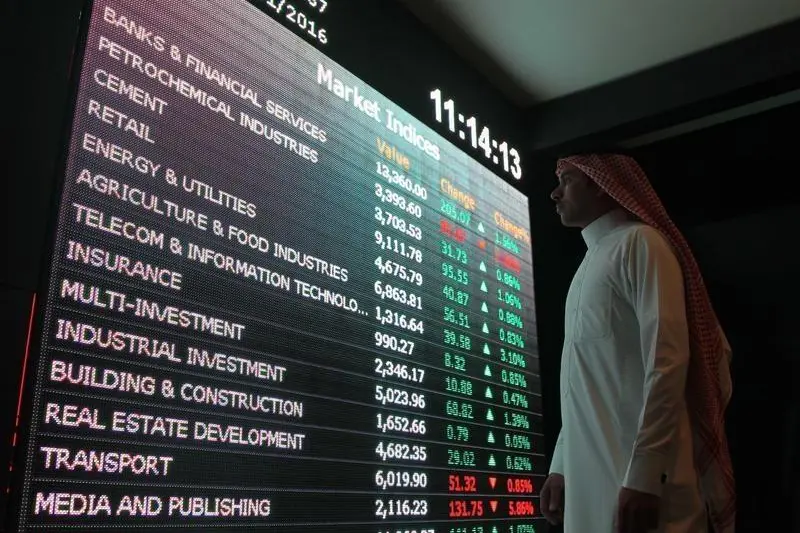PHOTO
Most stock markets in the Gulf ended lower on Monday as investors secured gains amid falling oil prices, but the Saudi index bucked the trend to close higher.
Oil prices, a key catalyst for the Gulf's financial markets, fell by more than $4 a barrel on demand fears as disappointing Chinese economic data renewed global recession concerns.
In Abu Dhabi, the index dropped 0.5%, retreating further from the record high reached on Thursday, with conglomerate International Holding Co losing 0.6%.
The Qatari benchmark fell 0.7%, ending three sessions of gains, hit by a 2.1% fall in Qatar Islamic Bank. Among other losers, Baladna dropped more than 3%, as the dairy firm's first-half profit nearly halved.
Saudi Arabia's benchmark index closed 0.2% higher in volatile trading, lifted by a 2.9% gain in Yanbu Cement Co Saudi Arabia's consumer price index rose 2.7% in July from a year earlier, government data showed on Monday, increasing from 2.3% in June. The food and beverages segment rose 3.9%, mainly due to higher food and meat prices in particular, which rose as much as 5.1%, the General Authority for Statistics said in a statement.
Dubai's main share index edged 0.1% higher, helped by a 1.1% rise in blue-chip developer Emaar Properties clawing back some of the previous session's losses. On Thursday, Emaar said it had reached a deal with Dubai Holding to buy its stake in their Dubai Creek Harbour joint venture for a total consideration of 7.50 billion dirhams ($2.04 billion).
Outside the Gulf, Egypt's blue-chip index declined 0.7%, weighed down by a 1.3% fall in E-Finance for Digital and Financial Investment. The Egyptian stock market continued to see some price corrections after the large rally at the beginning of the month, said Wael Makarem, senior market strategist at Exness. "The market could trade sideways until the Egyptian central bank's next meeting this week."
(Reporting by Ateeq Shariff in Bengaluru; Editing by Vinay Dwivedi)




















